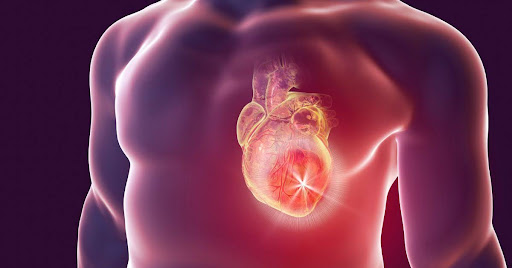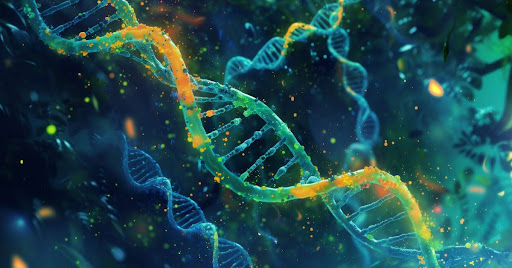Is Heart Disease Genetic? Understanding Your Risk Factors
3 min read
By DocGenie , Published on - 28 March 2025 Heart disease is one of the leading causes of death globally, often associated with lifestyle factors such as poor diet, lack of exercise, and smoking. However, many people are surprised to learn that genetics can also play a major role. This article explores the question "Is heart disease genetic?", unpacks the hereditary aspects of cardiovascular health, and highlights what you can do to reduce your risk.
Heart disease is one of the leading causes of death globally, often associated with lifestyle factors such as poor diet, lack of exercise, and smoking. However, many people are surprised to learn that genetics can also play a major role. This article explores the question "Is heart disease genetic?", unpacks the hereditary aspects of cardiovascular health, and highlights what you can do to reduce your risk.What is Heart Disease?
Heart disease is a broad term that includes a range of conditions affecting the heart and blood vessels. Common types include:- Coronary artery disease (CAD) – Narrowing of the arteries due to plaque buildup.
- Arrhythmias – Irregular heartbeats.
- Congenital heart defects – Structural issues present from birth.
- Heart failure – The heart's inability to pump blood efficiently.
These conditions can develop due to environmental, lifestyle, and genetic factors.
Is Heart Disease Genetic?
 Yes, heart disease can be genetic. A family history of heart problems increases your chances of developing similar conditions. Inherited traits, including high cholesterol, high blood pressure, and diabetes, are often linked to increased cardiovascular risk.
Yes, heart disease can be genetic. A family history of heart problems increases your chances of developing similar conditions. Inherited traits, including high cholesterol, high blood pressure, and diabetes, are often linked to increased cardiovascular risk.If a first-degree relative (parent or sibling) has been diagnosed with heart disease, especially at a young age, your risk may be significantly higher.
How Genetics Influence Heart Health
 Here are some of the hereditary factors associated with heart disease:
Here are some of the hereditary factors associated with heart disease:- Familial Hypercholesterolemia (FH): A genetic disorder that leads to high LDL (“bad”) cholesterol levels, increasing the risk of early heart disease.
- Hypertension: High blood pressure can run in families and may contribute to arterial damage over time.
- Diabetes: Although it's a metabolic disorder, type 2 diabetes often has genetic links that can contribute to heart disease risk.
- Obesity: While lifestyle plays a large role, genetic predisposition can influence metabolism and fat storage.
Symptoms of Heart Disease
Heart disease can develop silently over years, but several warning signs should not be ignored. Common symptoms of heart disease include:- Chest pain or discomfort (angina)
- Shortness of breath, especially with activity
- Fatigue or weakness
- Dizziness or fainting
- Irregular heartbeat
- Swelling in the legs, ankles, or feet
If you experience any of these symptoms, especially in combination, consult a healthcare provider promptly.
Reasons for Heart Disease: Lifestyle and Environmental Triggers
While genetics play a role, several reasons for heart disease are rooted in lifestyle and environmental exposures. These include:- Smoking – Damages arteries and raises blood pressure.
- Poor diet – High intake of trans fats, sugar, and salt contributes to obesity and arterial plaque.
- Lack of physical activity – Sedentary behavior can lead to weight gain and poor cardiovascular conditioning.
- Stress – Chronic stress may elevate blood pressure and trigger unhealthy coping mechanisms like overeating or smoking.
Is Heart Disease Inherited From Mother or Father?
Heart disease can be inherited from either parent. However, recent studies suggest a strong link between paternal heart health and a child’s cardiovascular risk, particularly in early-onset cases. That said, maternal history—especially if the mother had heart issues before age 65—is also significant.It’s essential to understand your full family history and discuss it with your doctor during checkups.
Heart Disease Prevention and Treatment
Even if you have a genetic predisposition, heart disease isn’t inevitable. Here's how you can reduce your risk:Lifestyle Modifications
- Healthy Diet: Choose heart-friendly foods such as whole grains, fruits, vegetables, and lean proteins.
- Regular Exercise: Aim for at least 150 minutes of moderate aerobic activity per week.
- Weight Management: Maintain a healthy BMI to reduce strain on the heart.
- Quit Smoking: One of the most effective ways to improve heart and overall health.
- Limit Alcohol: Excessive drinking can raise blood pressure and triglyceride levels.
Medical Interventions
- Cholesterol-lowering medications such as statins
- Blood pressure management
- Blood sugar control for diabetics
- Surgical options like angioplasty or bypass surgery for advanced cases
Routine screenings and early intervention can be lifesaving.



